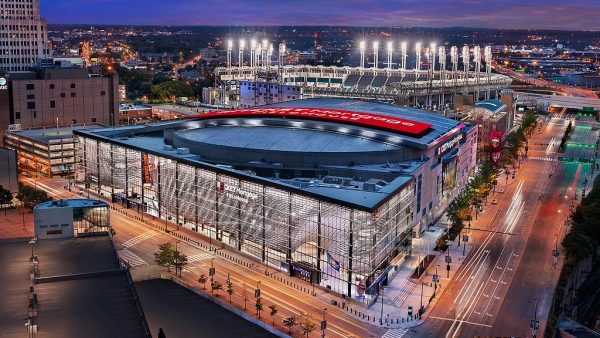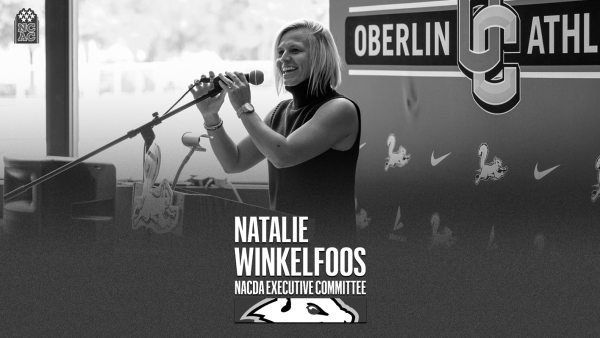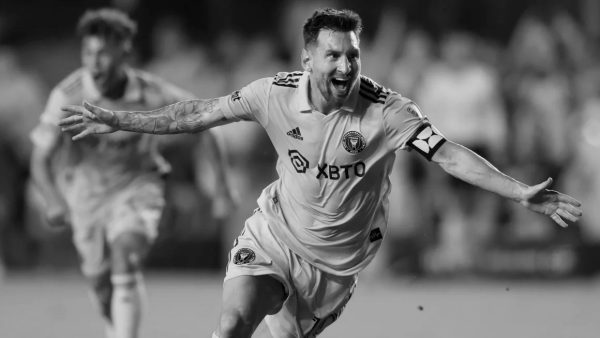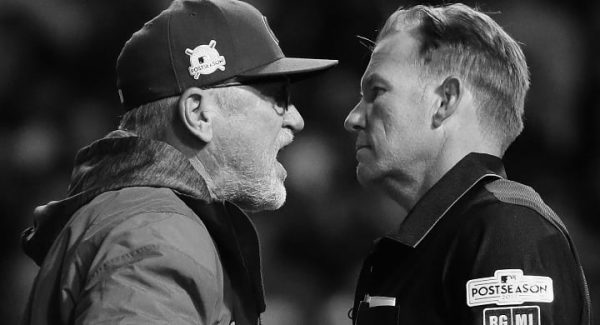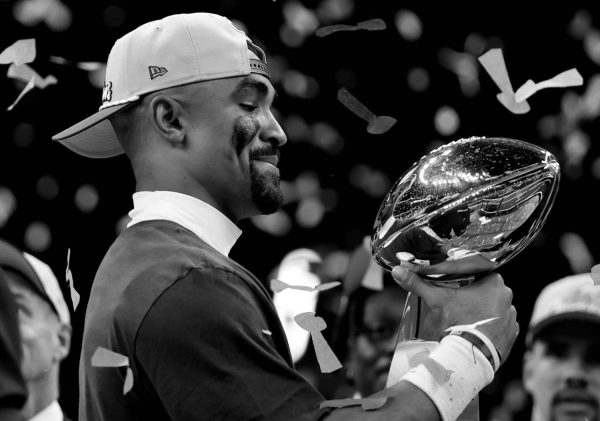‘Enough’: NBA Players Take a Stand Against Gun Violence
As former Miami Heat teammates LeBron James and Dwyane Wade laced up their sneakers and jogged onto the Amway Center basketball court for warm-ups, a 17-year-old boy just 30 minutes northeast of Orlando, in Sanford, FL, put up his hood and stuck a bag of Skittles in his pocket upon leaving a 7-Eleven.
At the same time as over seven million people tuned in for the tip-off of the 61st NBA All-Star Game — 7:30 p.m. on Feb. 26, 2012 — Trayvon Martin was pronounced dead.
Martin, a Black teenager from Miami Gardens, FL, was visiting his future stepmother with his father the night he was fatally shot in the back by George Zimmerman, a neighborhood watchman. Martin was unarmed and committing no crimes when he was murdered, yet Zimmerman was acquitted of all charges July 13, 2013.
A month after Martin’s death, both James and Wade took to social media to show support for his family. On March 23, 2012, Wade posted a photo of himself wearing a hooded sweatshirt to his Twitter and Facebook pages, and James tweeted a photo of members of the Heat wearing their hoods up with their heads bowed and hands in their pockets. The caption read “#WeAreTrayvonMartin #Hoodies #Stereotyped #WeWantJustice.”
Since that moment, pro basketball players have continued to use warm-up shirts, shoes, and other apparel to bring awareness to social causes they care about. In December 2014, a handful of players in the NBA wore shirts reading “I can’t breathe,” protesting the death of Eric Garner, who was choked by a New York Police Department officer.
On March 25 of this year, the Sacramento Kings and Boston Celtics wore shirts honoring Stephon Clark, who was shot eight times by two policemen in his own backyard. The front of the shirts read “Accountability. We are one,” with Clark’s name on the back.
Three months ago, James donated his very own Nike LeBron 15 Equality sneakers to the Smithsonian National Museum of African American History and Culture. The left shoe is white, the right shoe is black, and each has the word Equality scripted across the heel in gold lettering.
Recently, players have used clothing to draw attention to another issue of grave political and social importance — the abundance of mass shootings that have increasingly plagued the United States. On Nov. 7, a shooter entered the Borderline Bar and Grill in Thousand Oaks, CA, and after shooting several bar guards and employees, opened fire on a crowd of more than 200.
In total, 13 people — including the shooter — were killed in the 307th mass shooting to take place in the U.S. in 2018.
Following the events, players from four NBA teams — the Los Angeles Lakers, Atlanta Hawks, Milwaukee Bucks, and Los Angeles Clippers — wore black warm-up shirts with the word “Enough” on the front. The back listed the names of all the victims of the Thousand Oaks shooting.
This simple but significant action was generally met with support among the league.
“As I’ve always said, our players aren’t just ballplayers, they’re citizens,” NBA Commissioner Adam Silver said to ESPN. “They have strong feelings about what’s happening in society and they react to them. I think this was something that was a groundswell within the league. It came from the players and it spread by word of mouth from one team to another.”
Silver’s comments come at a time when his peers — particularly NFL Commissioner Roger Goodell — have been less supportive of players speaking out on relevant social and political issues.
Silver’s support for the warm-up shirts is also noteworthy at a time when the NBA has taken steps toward legislating players’ bodies — even extending to what tattoos they choose to put on their skin.
In August, Cleveland Cavaliers player J.R. Smith tattooed his leg with the logo for Supreme, a clothing brand that is not an official NBA corporate sponsor. In late September, Smith posted on Instagram that the league had informed him that he would face fines if he did not find a way to cover the tattoo during games.
Athletes in other leagues have also been fined or criticized for apparel choices that meant something to them but went against expectations. In 2015, former Pittsburgh Steelers running back DeAngelo Williams wanted to wear pink accessories all season to honor his mother who lost her battle with breast cancer. The NFL said no and that he would be fined if he wore pink outside of October, which is Breast Cancer Awareness Month.
Former Los Angeles Dodgers second baseman Chase Utley, who announced his retirement earlier this month, wore a “strike out cancer” shirt with his pants rolled up and no socks before a game against the Atlanta Braves this July. Braves announcer Joe Simpson went on a rant about Utley’s “lack of professionalism” and said the Dodgers organization should be embarrassed that Utley would carry himself in such a fashion.
Nevertheless, athletes in every professional American sport have followed the lead of James, Wade, and other NBA stars in being persistent about expressing themselves and taking a stand on issues that matter to them through clothing. This past March, Anthony Rizzo of the Chicago Cubs took batting practice in a shirt that had “#MSDStrong” written on it in support of his alma mater, Marjory Stoneman Douglas High School — the site of a mass shooting that took 17 lives.
Two months later, the Houston Astros wore shirts that read “We play for Santa Fe” to honor the eight students and two teachers who were killed in the Santa Fe High School shooting, an hour from Houston.
While athletic superstars don’t work in the U.S. Capitol and don’t have the power to introduce a gun control bill, their influence is far-reaching, and every decision they make — even something as small as one word written on the side of their sneakers or across their chest — catches the attention of thousands of fans and brings awareness to issues they might not look into otherwise.
At the very least, small acts like wearing an “Enough” shirt remind us that there are bigger things than sports, and our favorite athletes are more than just athletes — they are empathetic people with a desire for positive change in our country.


